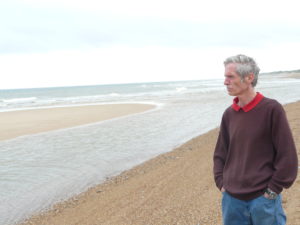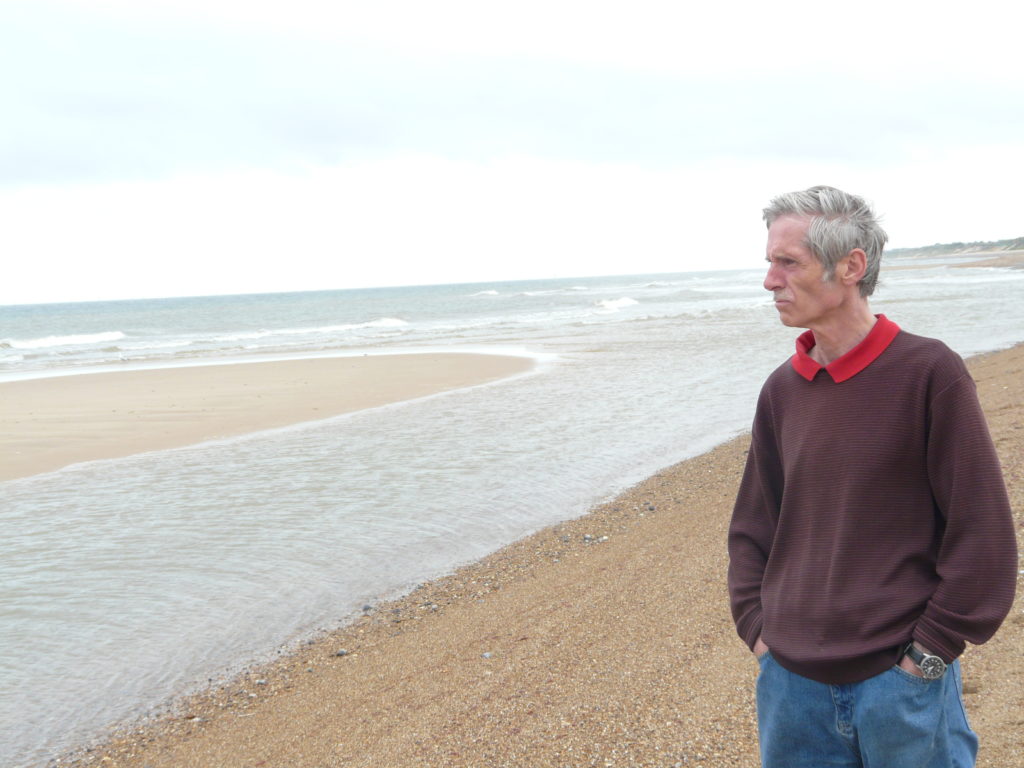Many years ago – in the 1950s and 60s – I went to Hemsby a lot. We used to rent a bungalow in the dunes furthest from the sea, accessible by a road with interesting ups and downs. It was the way the greengrocer got to us, in the days when the entire shop came to you and not just parcels.
There was no internet, of course, and there were no mobile phones, although there were rudimentary slot machines in the bright new emporium in the village. As I recall, you put an old penny in, and if you were successful, you got it out again. Pretty exciting. There was also a juke box, playing up-to-the-minute tunes like Last Train to San Fernando.
There were no trains to Hemsby, which is on the east coast of Norfolk, but there was a double-decker bus, which used to turn round in the field just down the road. Sometimes I used to go and watch it. I was easily amused, and quite happy, I seem to recall.
From our bungalow we had to negotiate a steep footpath to get to the sea. It went down into what we called The Valley, which was an area of grass, ferns and bushes where you could play football and cricket, or just sit out of the wind and have a picnic. The Valley ran from the centre of Hemsby (south a bit) up to Winterton (north a bit). It still does, actually.
To reach the sea, you had to climb the other side of The Valley by a sandy footpath (there were a maze of them) and then – after surveying the wide expanse of beach before you, possibly with the help of a telescope – tumble down into the soft sand and, if you had time, walk to the sea. It was quite a trek.
There were bungalows on that second stretch of dunes: you might pass them on your way to the sea, if you took certain paths. They are no longer there, because it is too dangerous. Further down the coast, similar bungalows have been falling into the sea with some regularity, because the sea is no longer miles away. It is eating away at that second row of dunes, and will soon break through. The Valley will be no more, and – well, you can guess the rest.
Climate change, I hear you say. Well, obviously the climate changes, but it may not be what you think. Two hundred years ago, for instance, I am told there were no dunes, and the lighthouse at Winterton, now a holiday home more than half a mile from the beach, was adjacent to it.
The dunes built up and now, of course, the story is about erosion, and whether it can be stopped. The question that interests me, however, is why people choose to live on the edge. where they are clearly at risk. The answer turns out to be that it is beautiful. It is a conclusion I came to after visiting Santorini, where stunning homes decorate the rim of an extinct volcano – except that it isn’t extinct. It is simply dormant at the moment. Risky? I should say so.
I rather admire people who live at Hemsby, even though it is not quite Santorini. And I do so because they are bucking the trend. The depressing truth about life in the 21st century – in the UK anyway – is that what concerns people most is staying alive. Health and Safety. Accident statistics. Ludicrously slow speed limits.
I suspect this may be because so many people believe that this life is all there is. You might describe that as a dangerous delusion, and I would agree. If you spend most of your life trying to make sure you stay alive, what you are doing is refusing to live life as it should be lived. Jesus Christ said he came to bring abundant life – real life. Rainer Maria Rilke said: “Beauty’s nothing but beginning of Terror we’re still just able to bear, and why we adore it so is because it serenely disdains to destroy us.”
By “terror” he meant the deep reality beyond the deadly routine. Helen Keller, who should know, said: “Life is either a daring adventure or nothing. Security does not exist in nature, nor do the children of men as a whole experience it. Avoiding danger is no safer in the long run than exposure.”
I never thought of Hemsby like that. But I wish I had.

